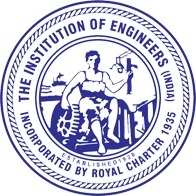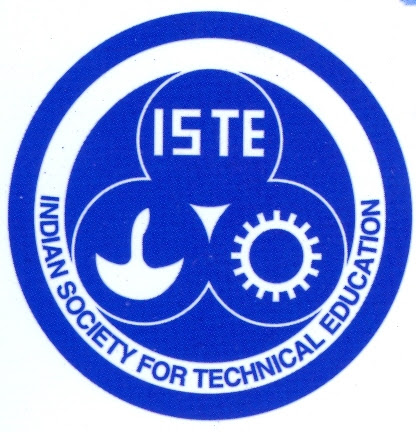- About
- Vision-Mission
- Laboratories
- Memberships
- Value Added Courses
- PEO/PSO/PO
- Curriculum & Syllabus
- Career Prospects
- Faculty
- MOUs
- Certificate Courses
- Internships
- FAQ
How to Become a Robotics Engineer
Becoming a Robotics Engineer involves a combination of education, practical experience and the development of specific skills. Here are the steps to embark on this exciting career path:- Obtain a Bachelor’s Degree: Pursue a bachelor’s degree in Robotics and Automation Engineering, Mechanical Engineering, Electrical Engineering or Computer Science. Many universities offer specialized programs like B.E. Robotics and Automation.
- Gain Practical Experience: Participate in internships, co-op programs, or research projects related to robotics during your undergraduate studies. Hands-on experience is crucial.
- Develop Essential Skills: Focus on acquiring skills in programming (Python, C++), mechanical design, electrical systems and sensor integration. Familiarize yourself with robotics software platforms like ROS (Robot Operating System).
- Advance Your Education: Consider pursuing a master’s degree in Robotics or a related field to deepen your knowledge and increase job prospects.
- Stay Updated with Industry Trends: Robotics is a rapidly evolving field. Stay informed about the latest advancements and technologies by attending workshops, seminars and conferences.
- Build a Professional Network: Join professional organizations, such as the IEEE Robotics and Automation Society and connect with professionals in the field.
Skills Needed to Be a Robotics Engineer
To excel as a Robotics Engineer, you need a blend of technical and soft skills:- Programming: Proficiency in programming languages like Python, C++ and Java.
- Mechanical Engineering: Understanding of mechanical design and manufacturing processes.
- Electrical Engineering: Knowledge of circuits, sensors and control systems.
- Problem-Solving: Strong analytical and troubleshooting skills.
- Creativity and Innovation: Ability to design and implement innovative solutions.
- Teamwork and Communication: Effective collaboration and communication skills.
Vision
To be recognized as a leader in Robotics & Automation Engineering education by producing engineers with systems and multidisciplinary approach by keeping up with technological advancements.
Mission
– To create opportunities for the students by imparting knowledge, experience and skills to become the leaders in Robotics & Automation education and research.
– To contribute to the economy through meaningful partnerships with Governments, Institutions and Industry in the field of Robotics & Automation.
– To produce successful professionals in Robotics and Automation by imparting high technical knowledge, strong fundamentals, practical skills and creative knowledge.
SEMESTER | SUB.CODE | LABORATORY NAME |
II | GE8261 | Engineering Practices Laboratory |
III | CE8481 | Strength of Materials Laboratory |
IV | RO8411 | Electrical Machines Laboratory |
IV | ME8481 | Dynamics Laboratory |
IV | RO8412 | LIC and Control Systems Laboratory |
V | MT8781 | Robotics Laboratory |
V | RO8511 | CNC and Metrology Laboratory |
V | RO8512 | Innovation Laboratory |
VI |
RO8611 | Automation System Design Laboratory |
VII | RO8711 | Modeling and Simulation Laboratory |
VIII | RO8811 | Project Work |
| Institution of Electronics and Telecommunication Engineers |  |
| Institution of Engineers, India |  |
| Indian Society of Technical Education |  |
| Society of Mechanical Engineering | |
| Society of Automobile Engineering |
SPECIALIZATION | SEMESTER | SUB.CODE | PROFESSIONAL ELECTIVES |
AI & Robotics, Neural Networks | VII | RO8003 | Artificial Intelligence for Robotics |
VII | RO8007 | Neural Networks and Fuzzy Systems | |
VII | RO8008 | Industrial Robotics and Material Handling Systems | |
Embedded Systems, Wireless Sensor Networks | VIII | MT8791 | Embedded System Design |
VIII | RO8010 | Wireless Sensors Networks for Robotics | |
VIII | EE8091 | Micro Electro Mechanical Systems | |
VIII | RO8013 | Internet Tools and Java Programming |
PROGRAMME EDUCATIONAL OBJECTIVES (PEO)’s
Bachelor of Robotics and Automation Engineering curriculum is designed to prepare the graduates having attitude and knowledge to
1. Have successful professional and technical career
2. Have strong foundation in basic sciences, mathematics and computational platforms
3. Have knowledge on the theory and practices in the field and service of robotics engineering and allied areas
4. Engross in life-long learning to keep themselves abreast of new developments
5. Practice and inspire high ethical values and technical standards
PROGRAMME OUTCOMES (PO’s)
1. Ability to apply knowledge of mathematics, sciences and engineering
2. Ability to identify the electrical, electronics and mechanical components and use of them design or machine elements and transmission system.
3. Ability to design automatic manufacturing cells with robotic control.
4. Ability to understand the electronic control system in metal machining and other manufacturing process
5. Ability to understand the features and operation of automation product
6. Ability to understand ethical and professional responsibilities
7. Ability to communicate effectively and work in interdisciplinary groups
8. Ability to review, comprehend and report technological development.
Regulations 2022 – View/Download
Regulations 2021 – View/Download
Regulations 2017 – View/Download
Robotics and Automation Engineering is an interdisciplinary branch that combines mechanical engineering, electrical engineering, computer science, and other fields. The curriculum includes:
– Mechanical Engineering: Fundamentals of mechanics, kinematics, and dynamics.
– Electrical Engineering: Circuit analysis, control systems, and power electronics.
– Computer Science: Programming, algorithms, and artificial intelligence.
– Sensors and Instrumentation: Integration and application of various sensors.
– Industrial Automation: Automation technologies and applications in industry.
The program is curated based on industry requirements and inputs from experienced professionals in academia and industry. It aims to equip students with the skills needed to meet industry standards and foster an innovative mindset.
Graduates of the B.E. Robotics and Automation Engineering program can pursue various career paths, including:
– Robotics Design Engineer: Designing and developing robotic systems..
– Automation Engineer**: Implementing automated solutions in manufacturing and other industries.
– Robotics Programmer: Programming and coding robotic systems.
– Robotics System Engineer: Integrating and maintaining robotic systems.
– Maintenance Engineer: Ensuring the efficient operation of robotic systems.
By enrolling in the B.E. Robotics and Automation Engineering program at J.N.N Institute of Engineering, you will gain the knowledge and skills necessary to excel in the dynamic and rapidly advancing field of robotics and automation.
List of Memorandum of Understanding (MoU) between Department of ECE and Industries
S.No.
| Date of MoU signed | Name of the Industry
| Domain Area
| Duration
| List the Actual Activities Under Each MOU and Web-Links Year-Wise
| Relevance’s to POs, PSOs |
1 | 28-12-2021
| IT Expert Training, Chennai
| IOT, Embedded Systems, Machine Learning
| 5 years | Industrial visits, Research & Development, Guest Lectures and FDP
| PO1, PO2, PO3, PO4, PO5, PO11 & PSO1, PSO2 |
2 | 14-02-2023
| VLSI Mentors, Bangalore
| VLSI Physical design
| 3 years | Industrial visits, Research & Development, Guest Lectures and FDP | PO1, PO2, PO3, PO4, PO5, PO11 & PSO1, PSO2 |
3 | 15-03-2024
| Chipware Technologies, Bangalore
| VLSI Design and Manufacturing Activities
| 3 years | Industrial visits, Research & Development, Guest Lectures and FDP | PO1, PO2, PO3, PO4, PO5, PO11 & PSO1, PSO2 |
4 | 20-03-2022
| Srivari Enterprises, Chennai | Assemblies for defense, automotive & non-automotive applications.
| 3 years | Industrial visits, Research & Development, Guest Lectures and FDP | PO1, PO2, PO3, PO4, PO5, PO11 & PSO1, PSO2 |
5 | 15-07-2023
| SESBL, Chennai
| Smart Sensors Technologies
| 3 years | Industrial visits, Research & Development, Guest Lectures and FDP | PO1, PO2, PO3, PO4, PO5, PO11 & PSO1, PSO2 |
6 | 21-09-2023
| V Formation, Madurai | Manufacturing Production systems
| 3 years | Industrial visits, Research & Development, Guest Lectures and FDP | PO1, PO2, PO3, PO4, PO5, PO11 & PSO1, PSO2 |
7 | 10-06-2024 | SCR Soft Technologies Pvt Ltd, Chennai | Industry 4.0, IoT Services, Engineering services, IT Services | 5 years | Industrial visits, Research & Development, Guest Lectures and FDP | PO1, PO2, PO3, PO4, PO5, PO11 & PSO1, PSO2 |
8 | 22-01-2025 | Active Infratel Private Ltd, Gujarat | Telecommunications, BTS, MW, GSM trends | 3 years | Industrial visits, Research & Development, Guest Lectures and FDP | PO1, PO2, PO3, PO4, PO5, PO11 & PSO1, PSO2 |
This course was started in 2020-2021 AY and students are currently pursuing their 2nd year. Relevant content will be added soon.
This course was started in 2020-2021 AY and students are currently pursuing their 2nd year. Relevant content will be added soon.
Frequently Asked Questions (FAQ) about Robotics and Automation Engineering
The B.E. Robotics and Automation Engineering program at J.N.N Institute of Engineering is an undergraduate course designed to provide students with the necessary knowledge and skills to excel in the field of robotics and automation. It covers a wide range of subjects including mechanical design, electrical systems, programming and sensor integration.
Students must have completed their higher secondary education (10+2) with a strong foundation in mathematics and science. They must also meet the institute’s specific admission requirements, which may include entrance exams and interviews.
The program includes subjects such as: Robotics and Automation, Mechanical Design, Electrical Circuits and Systems, Programming (Python, C++, Java), Sensor Integration and Control Systems, Artificial Intelligence and Machine Learning, Embedded Systems, Robotics Software Platforms like ROS (Robot Operating System).
Graduates can pursue careers in various industries including manufacturing, healthcare, automotive, aerospace, and research institutions. Potential job roles include Robotics Engineer, Automation Engineer, Control Systems Engineer, Research Scientist and AI Specialist.
The program offers numerous opportunities for practical experience through internships, co-op programs, research projects, and hands-on laboratory work. Students are encouraged to participate in industry collaborations and real-world robotics projects.
To excel in this field, students need a combination of technical and soft skills including: Proficiency in programming languages (Python, C++, Java), Understanding of mechanical design and manufacturing processes, Knowledge of electrical circuits, sensors and control systems, Expertise in algorithms, data structures and software development, Strong problem-solving and analytical skills, Creativity and innovation in designing solutions, Effective teamwork and communication skills.
J.N.N Institute of Engineering supports professional development through: State-of-the-art laboratories and facilities, Experienced and dedicated faculty members, Industry collaborations and MOUs with top-level industries and training providers, Opportunities to attend workshops, seminars and conferences, Membership in professional organizations such as the IEEE Robotics and Automation Society.
The program typically spans four years, divided into eight semesters. Each semester includes a mix of theoretical coursework, practical labs and project work.
Yes, graduates can pursue further education such as a master’s degree or Ph.D. in Robotics, Automation, Mechanical Engineering, Electrical Engineering, or Computer Science to deepen their knowledge and enhance their career prospects.
Interested students can apply through the institute’s admission portal or contact the admissions office for detailed information on the application process, required documents and important deadlines.
Embarking on the B.E. Robotics and Automation Engineering program at J.N.N Institute of Engineering provides a solid foundation for a promising career in the rapidly evolving field of robotics and automation.

